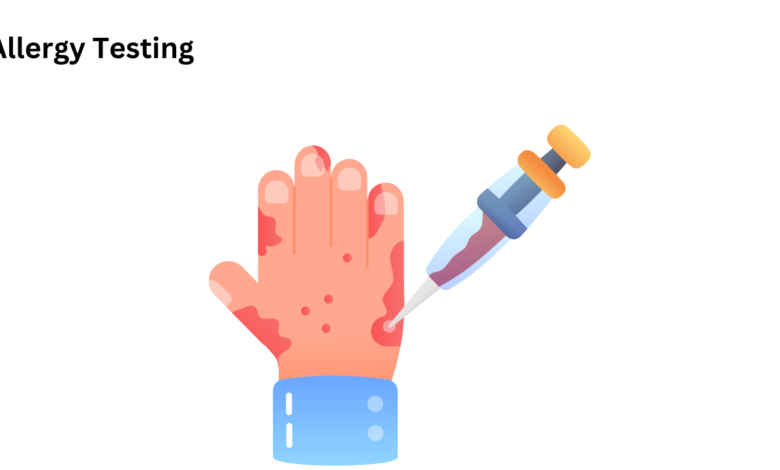Allergy Testing: To check for allergies to menstrual products or other substances.
Allergy Testing: Uncovering Your Triggers for a Healthier Life

What are Allergy Testing ?
Allergy testing is a series of medical procedures used to identify substances that trigger allergic reactions in a person. These substances are known as allergens. Common allergens include:
- Pollen
- Dust mites
- Pet dander
- Mold
- Foods
- Medications
Why Allergy Testing is required ?
Allergy testing is important for people who experience allergic symptoms, such as:
- Sneezing
- Runny nose
- Itchy eyes
- Rash
- Wheezing
- Difficulty breathing
By identifying the specific allergens that trigger these symptoms, individuals can take steps to avoid them and manage their allergies more effectively.
Which are the method of Allergy Testing ?
There are several different methods of allergy testing, including:
- Skin prick test: This test involves pricking the skin with tiny amounts of potential allergens and observing for a reaction.
- Intradermal test: This test is similar to the skin prick test, but the allergens are injected into the skin rather than pricked.
- Patch test: This test involves applying patches containing potential allergens to the skin for several days and observing for a reaction.
- Blood test: This test measures the level of antibodies (IgE) in the blood that are specific to certain allergens.
Who should go for Allergy Testing ?
People who experience allergic symptoms should consider getting allergy testing. Children who have a family history of allergies may also benefit from testing.
What are the result of Allergy Testing?
The results of allergy testing can help to identify the specific allergens that trigger your symptoms. This information can be used to develop a personalized treatment plan, which may include avoiding allergens, taking medications, or undergoing immunotherapy.
What are the component of Allergy Testing ?
Allergy testing may involve a combination of different tests, depending on the individual’s symptoms and medical history. The tests are typically performed by an allergist or immunologist.
If you have any concerns about allergies, it’s important to consult with a healthcare provider for proper evaluation and testing.





